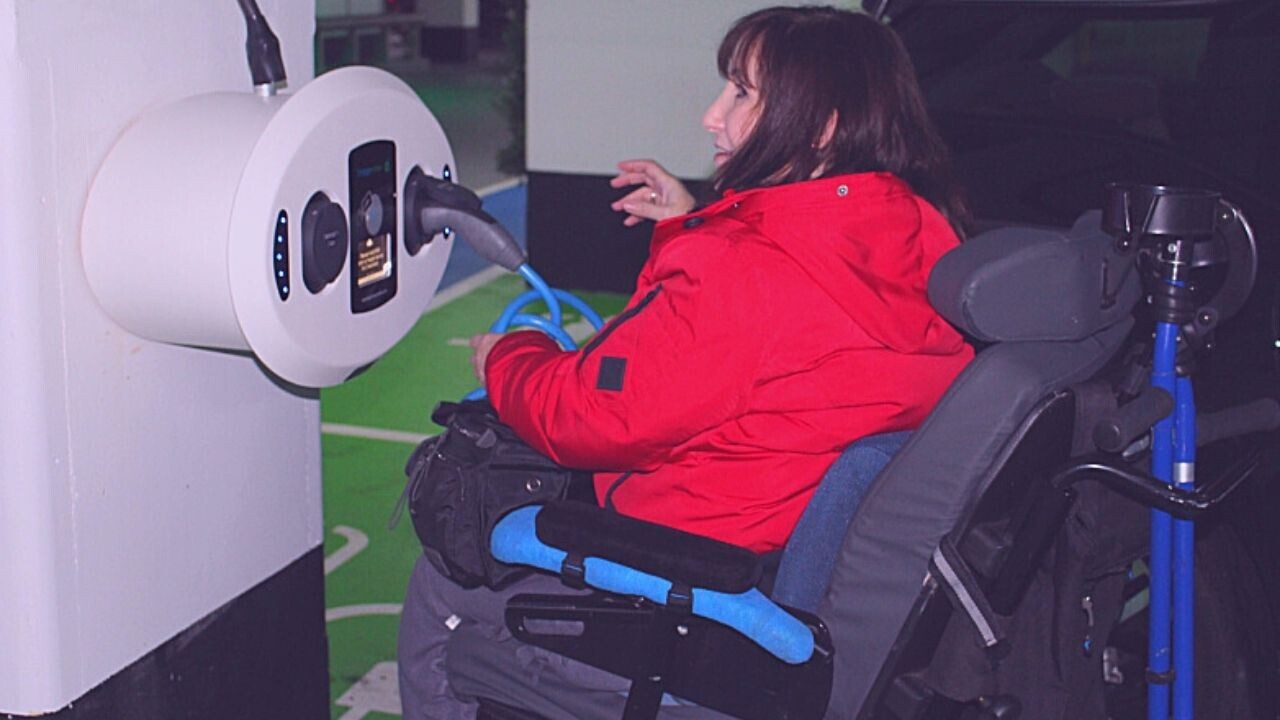
The latest research by the UK’s Research Institute for the Disabled Consumers (RiDC) has brought to light some very disturbing findings: just 0.003% of charging locations across the country have been designed to be accessible to disabled drivers.
According to the UK Equality Act 2010, it’s illegal to discriminate against individuals with disabilities. Yet the lack of inclusive charging infrastructure means that the country’s 14 million disabled people might well be left behind.
To tackle this issue, Transport Minister Rachel Maclean announced in June that the government is working together with the national disability charity Motability and the British Standards Institute (BSI) to develop accessibility standards for EV charge points across the UK.
These standards will provide the industry with guidance and drivers with a new clear definition of “fully accessible,” “partially accessible,” and “not accessible” public EV charge points.
However, the implementation of the standards is nearly a year away (they are set to be introduced by summer 2022), and even when they arrive, there’s still no regulatory framework to ensure that the accessible chargers will be installed in the numbers required.
Charities and organizations express dismay
Auto Express spoke with charity and mobility organizations, who all voiced serious concerns and painted a gloomy picture of the current state of EV chargers.
According to Fazilet Hadi, head of policy at Disability Rights UK:
“Charging points should be accessible to wheelchair users, those with dexterity issues, and people with sensory impairments. […] The government needs to take urgent action to prevent thousands of inaccessible charging points being installed. Neglecting the needs of disabled drivers is utterly shocking. It’s turning the clock back.”
The charity is also worried that without proper legislation the UK’s public charging network will be left in the hands of commercial organizations.
Adding to that, Disabled Motoring UK CEO Graham Footer noted that if the government doesn’t act fast, it’s going to cost it a lot of money to remedy the situation in the future.
Because when disabled drivers start to challenge the legality of many of these installations in the courts, they will undoubtedly win.
Disabled Motoring UK also exposed the challenges disabled drivers face during an audit of Brighton and Hove City Council’s public charging points.
There was too small a room to unload wheelchairs on the charging bays, and even when that was possible, they were obstructed by narrow pavements and the lack of dropped curbs.
The chargers themselves were often too tall, which means that screens couldn’t be seen clearly from a seated position, while charging sockets and cables were mostly placed too high, which made it difficult to extract them. Not to mention that there was no appropriate lighting, audio-visual support or signage.
Disabled drivers would like to switch to EVs, but…
Some 54% of disable drivers, who participated in a survey again by RiDC, said that lifting the charging cable from the boot and then closing it would be either “difficult” or “very difficult” to do.
A further 41% fear that they would struggle to manoeuvre the cable at the charge point, and two-thirds (66%) expressed their concerns over hazards and barriers both around the car and the chargers.
Overall, 61% of disabled non-EV drivers would consider making the switch only if charging was made more accessible.
Do EVs excite your electrons? Do ebikes get your wheels spinning? Do self-driving cars get you all charged up?
Then you need the weekly SHIFT newsletter in your life. Click here to sign up.
Get the TNW newsletter
Get the most important tech news in your inbox each week.




